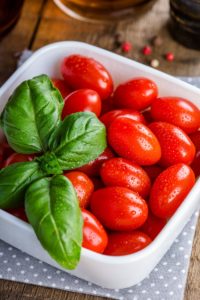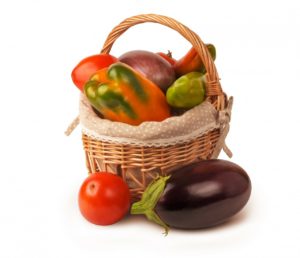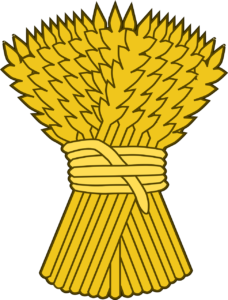The following are my notes for a presentation that I recently gave to Elevate Leadership and Consulting. A big shout out goes to Bible.org for providing the founding principles and the inspiration for a good portion of this presentation. To download the PowerPoint; click here.
Understanding the Law of the Harvest
We all know the Law of the Harvest, it has been drilled into us from when we were little. We’ve been told you are what you eat. Garbage in, garbage out. You become the average of the friends with whom you associate. You reap what you sow.
That idea stems from the Bible verse Galatians 6:7 which says “Do not be deceived, God is not mocked. A man reaps what he sows.”
The verse is talking about you can’t trick God. If you invest in yourself and in sin, you can’t turn around and say that you are trying to do what God would want for your life. But beyond spiritual application, there are important personal and business applications that we can take away from this simple verse.

John Maxwell touches on it in on page 13 of Thinking for a Change when he says “If you expect to reap corn when you planted nettles, you’re not going to get corn — no matter how much time you spend watering, ferilizing, or cultivating your plants. If you don’t like the crop you are reaping, you need to change the seed you are sowing!”
But it goes a lot deeper than that; yes if we sow corn we reap corn and sowing nettles yields nettles. But that’s just the start.
In reality, there isn’t a law of the harvest. There are 7 laws of the harvest.
1 – We reap only what has been sown.
 The idea here is that we can’t benefit from something that has not been sown. For instance, if every farmer in the world were to sow corn, we wouldn’t be able to reap any other fruits, grains, or vegetables. If you’ll notice the first law doesn’t say that we reap only what WE have sown.
The idea here is that we can’t benefit from something that has not been sown. For instance, if every farmer in the world were to sow corn, we wouldn’t be able to reap any other fruits, grains, or vegetables. If you’ll notice the first law doesn’t say that we reap only what WE have sown.
We can reap the rewards of what others have sown before us. Danny has come along and learned a lot about business, leadership, mentorship, and growth. We get to reap the benefits of the foundation he built.
Our forefathers sowed the seeds of the constitution and set up our governing system; today we reap the benefits of what they have sown.
But on the other hand, we reap the downsides too; the negatives. Americans have sown the seeds of living a life based on credit; and we saw that the entire country reaped the negative rewards of that back in 2008 when the housing bubble burst.
Suppose your neighbor sows seeds of vandalism throughout the area, the neighbors reap the negative rewards of an ugly neighborhood.
In your own life, what seeds are you sowing for the benefit (or detriment) of others? Are you casting good seeds so that others can grow, prosper, and live a fuller life? Or are you hanging onto the good and only letting out the mediocre and the negative?
2 – We reap the same kind as we sow.
As John Maxwell put it, we can’t sow nettles and expect to harvest corn. But the personal application isn’t as neat as the agricultural example.
We have always heard that if you sow discord, hate, and anger, you can expect to reap the same. But what’s that even mean? Aside from if I’m always angry at people, they will always be angry at me. So let’s look at a real life example from the Bible.
King David is considered pretty inspirational. He rose up from a lowly shepherd boy, killed the giant, fled Saul, and led the people of Israel. He was described as a man after God’s own heart. However, there’s one story that stands out that wasn’t his finest moment. His choice to skip out on his kingly duties of leading his army led to a downward spiral of reaping what he sowed.
- He lusted
- He committed adultery
- He committed murder
- He stole
- He lied
A poor choice, one that he was fully aware of making, sowed the seeds. What he reaped were a bunch of crops of the same kind.
When things are going your way, look back and see what seeds you sowed to get there. If you feel like life is kicking you while you’re down, look back and see what seeds you sowed to get there.
They may not look like what you’re reaping, but they’ll be the same kind.

3 – We reap in a different season than we sow.
When you were in high school and college, how did you study for tests? If you’re like most people you put it off to the last minute. Then you would cram the night before trying to stuff as much information in as possible in hopes that your short term memory would let you recall the right answers. You learned how to take a test, but you didn’t learn the information.
 Now imagine if a farmer tried to do the same. All winter he takes a break. In the spring he enjoys the weather and goes fishing. Through the summer he lays out in the sun working on his non-farmer’s tan. At the end of August he realizes that he has a harvest coming soon, so he rushes through the tilling, the planting, the watering, and the fertilizing. We don’t have to be farmers to realize that’s never going to work in his favor, but we too often try to do the same thing in our lives because we’re not farmers.
Now imagine if a farmer tried to do the same. All winter he takes a break. In the spring he enjoys the weather and goes fishing. Through the summer he lays out in the sun working on his non-farmer’s tan. At the end of August he realizes that he has a harvest coming soon, so he rushes through the tilling, the planting, the watering, and the fertilizing. We don’t have to be farmers to realize that’s never going to work in his favor, but we too often try to do the same thing in our lives because we’re not farmers.
We have all heard the story of Michael Jordan. He was cut from his high school team, and didn’t get into the college of his choice. He worked hard, and years later became the best ball player of all time.
Tiger Woods, scandals aside, started golfing at age 3. After hitting a ball, even at that young age, his dad would have him pause and tell him why the ball performed the way it did. It was 17 years later when he would win his first championship.
Bill Gates wasn’t always a computer mogul. But from the time he was in grade school he had an interest, and was “hacking” by middle school. His first company, Traf o Data, failed. But he recognized a trend toward micro computing and was able to harvest the seeds planted in early life over a decade later.
Take a look at your business. There are very few overnight successes. Instead, “Success comes to those who habitually do things that unsuccessful people don’t do.” (Page 13 in Thinking for a Change)
4 – We reap more than we sow.
Turn over the paper in front of you. You probably know what seed that is. If you plant the sunflower seed (and cultivate it properly), it will grow and turn into a flower. That flower will yield seeds. How many seeds do you suppose that flower will yield? The answer: 2,000 seeds. One seed turned into 2,000 seeds.
Jeramie can attest to this in the financial world. If we invest $100 each year for 30 years, we will have contributed $3,000. But our account will be worth $12,500.
If we invest in people, specifically employees, they will be more productive than if we just throw them out there on their own. What they produce will be far more than what we invest in them.
When we strategically plan out our business, and put systems and strategies in place, our businesses can grow without as much hands on technician work from us.
If we provide a superior product or service, and treat our customers right, then we can see growth as they tell 2 friends, and each of them tell 2 friends, and each of them tell 2 friends…

5 – We reap in proportion to what we sow.
 Related to the previous law, this one is slightly different. If you plant one sunflower seed, you can expect to harvest 2,000 seeds. If you plant 10 sunflowers, you can expect to harvest 20,000 seeds. If you plant 100, you can expect 200,000 seeds. Etc. The more we plant, the more we harvest.
Related to the previous law, this one is slightly different. If you plant one sunflower seed, you can expect to harvest 2,000 seeds. If you plant 10 sunflowers, you can expect to harvest 20,000 seeds. If you plant 100, you can expect 200,000 seeds. Etc. The more we plant, the more we harvest.
We reap more than we sow, we reap in proportion to what we sow, and we reap in kind of what we sow. Look at the story of King David again. He sowed one little seed of shirking his kingly duties. He harvested a host of problems, and ultimately what he sowed resulted in the death of 4 of his sons. Neglecting his kingly duties doesn’t seem like that big of a deal; but proportionally they grew, and expanded, and resulted in a lot of grief many years later.
Look at the story of Bill Gates. His fascination with computers was a hobby. It resulted in him being one of the richest people in the world.
Look at Big Sky Collision Center. They have a core value of doing the right thing every time without compromise. It has taken them from being an auto body shop, to shaking up the industry as the best in Billings.
Months ago Jeramie talked about the 1% difference. Do a little more now, results in a lot more later.
6 – We reap the full harvest of the good only if we persevere; the evil comes to harvest on its own.
Who has a garden? When you started gardening, did you just create a spot and suddenly it was filled with edible plants? Of course not! You had to create the space, till the soil, ensure that it was all prepped. You had to plant tomatoes, corn, peas, cucumbers, etc. You had to water, perhaps fertilize, and make sure the plants were supported properly. You worked and persevered; but what happened next to the plants? Weeds grew up. And if you let them go, they grow all on their own. You don’t have to till, cultivate, water, or support. The good comes from work, the evil happens without any help.
Lee Iacocca took Chrysler from a floundering auto company, and returned it to profitability. But he tried to simply stay put and bask in the glory instead of persevering. Chrysler is stuck in mediocrity.
Albert Dunlap, a name most of us have never heard, was known for giving employees the axe in order to “save” dying companies. He would take over the company, “save” them, and then sell them off. One company, Sunbeam, saw their stock rise so much, nobody wanted to buy it. Dunlap was left running a company that he didn’t know how to run, and eventually the company folded after defaulting on a $1.7 billion loan.
Through the 1990’s AOL and Time Warner were huge and profitable. In the early 2000’s the two companies merged, but both had let years of riding the wave catch up with them. In 2002, after the merger, AOL Time Warner posted a loss of almost $100 billion; the largest yearly loss in history.
These three stories aren’t rare. They are companies that did the work early, but then didn’t persevere to the end. Evil crept up and caused, in many company’s cases, their demise.
In your business, how much wood did you chop and how much water did you carry? How long did the foundation take to build? What did you do to get to where you are? Don’t let complacence lead to a slow decline that can cause big problems later.

7 – We can’t do anything about last year’s harvest, but we can about this year’s harvest.
 There are plenty of people out there that lament over things that have happened to them. We see it in today’s culture and society quite a bit. It’s the woe is me attitude, the I can’t catch a break, the I can never get ahead, attitude. Those people then turn around and do the exact same thing they have always done, with expectation that the next time it will be different.
There are plenty of people out there that lament over things that have happened to them. We see it in today’s culture and society quite a bit. It’s the woe is me attitude, the I can’t catch a break, the I can never get ahead, attitude. Those people then turn around and do the exact same thing they have always done, with expectation that the next time it will be different.
If you plant nettles, you harvest nettles. There’s nothing you can do about harvesting those nettles, but you can prevent a harvest of nettles in the future. But how many of us have driven along and seen the sugar beet field with corn stalks growing in it? There will be carryover from those poor choices from the years before.
When things go our way, learn from what went right, and apply it to next year so the harvest is even more bountiful. When things don’t go our way, learn from what went wrong, and apply it to next year so next year the evil harvest can be diminished.
When we sow, we can expect the same results whether we sow positive or negative.
David sowed one tiny seed of disobedience (1). He reaped much of the same kind as he sowed (2 and 4). The results of that sin didn’t show up for many years (3). He reaped in proportion (5) by making a series of poor choices that resulted in a lot of death. He repented and turned from his sin when confronted, but the evil still grew on its own (6), but that turnaround helped plant seeds for good in the future (7).
What seeds are you planting?
The Law of the Harvest says that every seed will yield a result.

One Response